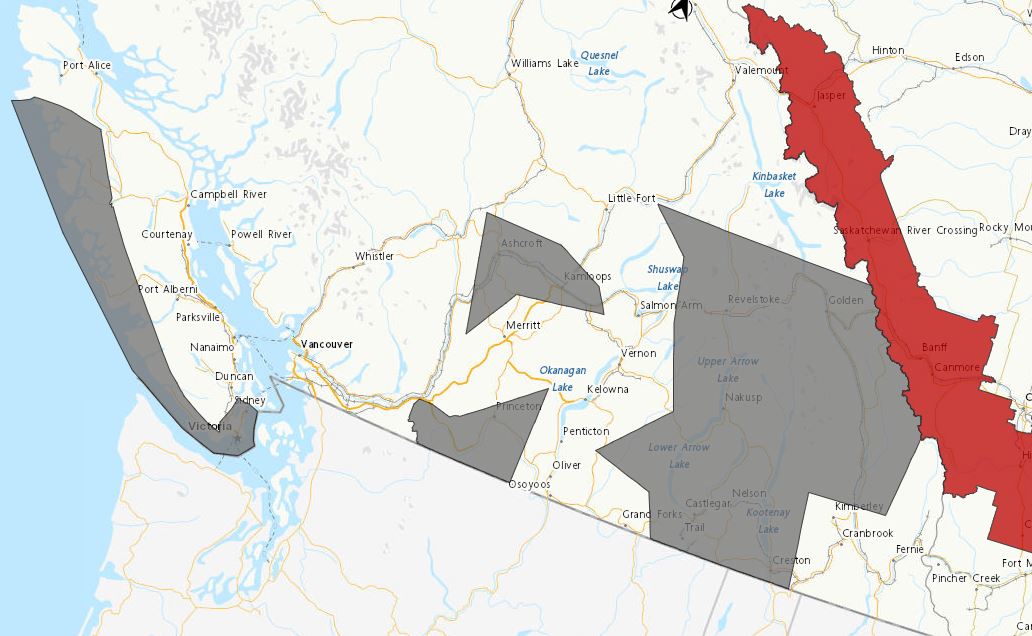As wildfires continue to burn throughout B.C. and in the Rocky Mountains, Environment Canada has issued several air quality bulletins for southern regions of the province.

The advisories are in effect for most of southeastern British Columbia, areas around Kamloops and Ashcroft, Princeton and the Highway 3 corridor through Manning Park, and southern and western Vancouver Island.
The advisories are expected to remain in effect for at least the next 24-48 hours.
The fine particles in wildfire smoke can pose a health risk, especially to seniors, pregnant women and young children.

Get daily National news
Dr. Chris Carlsten, the head of respiratory medicine at the University of British Columbia, said they’re also dangerous for people who already have respiratory issues.
“Those people that have pre-existing conditions and their airways may already be compromised by asthma or COPD (chronic obstructive pulmonary disease), they’ve got less reserve, they’ve already got it compromised by an existing disease, and this can tip people over the edge into an asthma attack or a COPD exacerbation,” he said.

Carlsten warned that early research has begun to show that long-term exposure to wildfire smoke can also lead to developing diseases such as asthma, COPD and lung cancer.
“Unfortunately, it is starting to show that the same types of disease that occurs from long-term effects of traffic (pollution) … those same kind of long effects are true for fire smoke, unfortunately.”
Environment Canada is urging people to pay attention to how they are feeling, and to consider reducing or stopping strenuous outdoor activities if they begin to feel unwell.
It’s also urging people to stay indoors, keep doors and windows shut, and keep cool. Well-fitting N95 masks can also help reduce exposure.
- Trial starts for man charged in connection with fatal stabbing outside Vancouver Starbucks
- Deaths of Prince Rupert family ruled homicide-suicide, inquest finds
- Jim Robson, legendary voice of the Vancouver Canucks, dies at 91
- More than 100 B.C. First Nations urge Eby to uphold DRIPA or risk backslide










Comments
Want to discuss? Please read our Commenting Policy first.